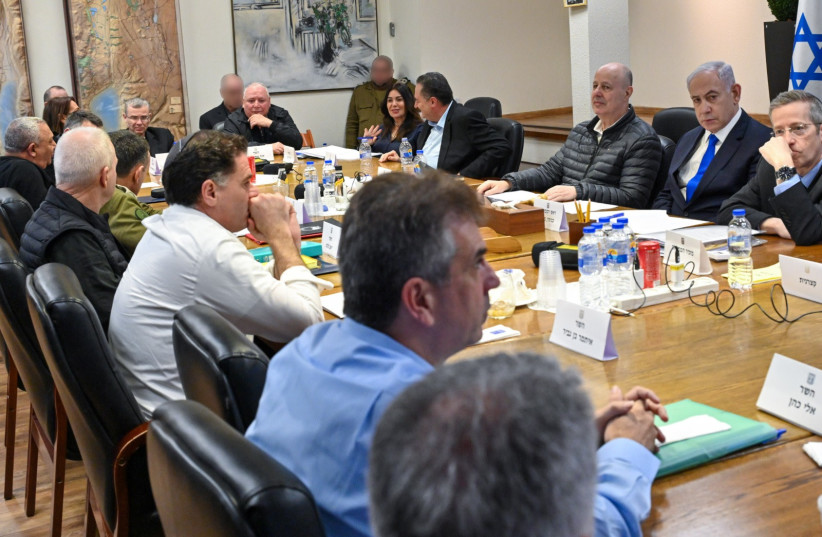Netanyahu approves Rafah operation, Israeli officials to head to Qatar
Prime Minister Benjamin Netanyahu has approved a military operation for Rafah in Southern Gaza, that will also include the evacuation of civilians, his office said on Friday after the war cabinet met in the early afternoon.
The Rafah operation has been one of the levers Israel has used to pressure Hamas to make a deal for the return of the remaining 134 captives held in the enclave.
The international community has opposed the move fearing for the fate of the over 1.3 million Palestinians in the area of Rafah, many of whom fled there to escape bombing in northern Gaza.
The US has insisted that Israel must present a credible and realistic plan to protect civilians in Rafah, with US National Security Communications Adviser John Kirby saying on Thursday that the Biden administration has yet to see such a plan.

Hostage talks in Qatar
At the same time as the war cabinet appeared to advance the possibility of a Rafah operation the Prime Minister’s Office said that an Israeli delegation is also expected to leave for Doha for hostage talks after the security cabinet discusses the government’s position on the issue.
It underscored that Hamas’s stance about the talks is still far-fetched.
Qatar, Egypt, and the United States, all of whom had hoped to broker a deal by last Sunday or Monday continued to push forward with their efforts, as they appeared to have past a hurdle on Friday as noon prayers on the Temple Mount passed relatively smoothly.
An outbreak of violence on the Temple Mount, known to Muslims as al-Haram, al-Sharif could have impacted the possibility of a deal.
Egyptian President Fattah al-Sisi said he hoped there could be a deal within a few days as visited a police academy on Friday.
“We wish within a few days at most to reach a ceasefire and not to have a negative development that could affect the situation,” Sisi said in comments recorded during his visit.
“We are talking about reaching a ceasefire in Gaza, meaning a truce,” Sisi said, adding that the deal would allow for an increased distribution of humanitarian assistance and enable Palestinians who sought shelter in the south to return home.
The US has persistently said that the deal on the table involved a six-week pause to the war and the release of 40 hostages, primarily the female, informed, and elderly captives. Israel would also be asked to release Palestinian security prisons and terrorists it has held in jail.





Comments are closed.